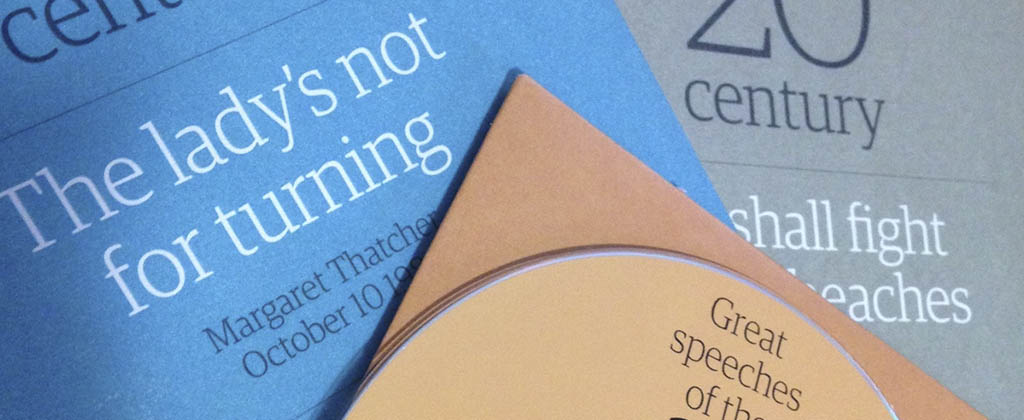Great Speeches: Writing Out Loud
This post is the introduction to a Series on Great Speeches. In 2007 The Guardian published a series of booklets, with accompanying cd, entitled Great Speeches of the 20th Century, ranging from Winston Churchill to Nelson Mandela, Emmeline Pankhurst to Virginia Woolf.
Listening to a great speech you're reminded of the power of words once they've leapt off the page. The ability to take an idea and communicate it in such a way that it conjures up an unforgettable image or captivates and motivates an entire crowd.
With the US Elections looming and the EU Referendum taking place in a matter of weeks, we don't lack for speeches. But we lack great speechmakers, with President Barack Obama perhaps our most gifted orator these days.
Or maybe we just lack the attention it takes to consume a lengthy monologue, allowing a chain of thought to occupy our imagination for longer than a tweet?
Celebrating Great Speeches
In 2007 The Guardian published a series of booklets, with accompanying cd, entitled Great Speeches of the 20th Century, ranging from Winston Churchill to Martin Luther King, Emmeline Pankhurst to Virginia Woolf. Each has been introduced by a related individual, providing some context: FW de Klerk writes the foreword on Nelson Mandela's Speech in 1964; Germain Greer writes for Emmeline Pankhurst's 'Freedom or Death' speech in 1913.
My hope in reading and reviewing these speeches over the course of the year - on the anniversary of as many as possible - is to reflect on what made the writing great.
Although each of these speeches is remembered for the occasion or the person delivering it, someone had to first sit and write it. Someone - possibly the speaker - had to find the inspiration, make use of the facts, capture the emotion, draft, edit, and re-draft. Then, ultimately, commit themselves to a final version and listen to its delivery.
Write It Out Loud
It's hard work for anyone. But the best advice for any budding writer is to do just that: write it out loud.
Get it on the page. Work at it. Work hard at it. Do all you have to do to get it written but once you have, listen to it. Listen to the words leaving the page and - if you've done your job - they'll lead exactly where you intended them to go.
But if you're someone who's just trying to figure out how to get started, Chris Anderson, Head of TED, will take you through the process of giving a TED talk, compressing a three-month process into just three days [VIDEO].

